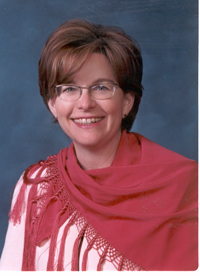 |
Debra Ann Reilly, M.D. |
“Small children often explore the world through touch, but curiosity is leading to a painful lesson for many little ones this spring,” said Debra Ann Reilly, M.D., medical director of the burn center at The Nebraska Medical Center and associate professor of surgery at UNMC.
Since April 29, five children between the ages of ten to 23 months have been treated in the burn center for burns caused by outdoor grills.
“These children are just the right height to touch the base of the grill. The skin of young children is also thinner than adults, which means it burns deeper and at a lower temperature,” Dr. Reilly said. “Many of these burns can heal within two weeks but during the healing process, the child needs to visit the outpatient clinic two to three times a week for dressing changes. This process is very painful.”
It can also be a challenging time for parents because although children can continue to pursue most normal play activities during recovery, the bandages cannot get wet in the bath or pool.
Here are tips to help families prevent grill burns:
- Keep children away from the grill and make sure any backyard games are conducted at a safe distance from the grill;
- Do not place smaller grills at ground level, rather, place them on a table out of a child’s reach;
- Use a childproof gate to keep children away from a grill when in use;
- Realize that the grill remains hot for a period of time after the grill is turned off; and
- Keep a water hose handy to immediately cool off a burn injury.
Campfires and backyard fire pits present a similar danger. Caution is urged this Memorial Day weekend and throughout the summer. Children are often mesmerized by open flames and will want to poke at the fire with a stick.
“It is critical that you teach your children to respect fire,” Dr. Reilly said.
Here’s a list of campfire tips:
- Never leave children unsupervised around a campfire, even for a second. Ensure a proper adult/child ratio when groups gather around a campfire;
- Make a rule that bans horseplay close to a fire pit;
- When building a campfire, do not use gasoline as a starter. The flash flame from igniting fuel-soaked materials can reach several feet beyond the perimeters of the fire pit and severely injure bystanders;and
- Children need to be taught that the stones ringing a fire pit become extremely hot and cannot only burn little hands, but melt the bottoms of shoes. Be alert to hot coals and embers that may fly outside of the fire perimeter. This is a good reason to ban bare feet near a campfire.
Whatever the cause, it is critical to treat a burn immediately. Cool the burned area with a large amount of water. Do not use ice or ice water except on small surface burns. Apply soaked towels, sheets or other wet cloths to the face or other areas that cannot be immersed. Keep the cloth cool by adding more water. Cover the burn with dry bandages or clean clothing and loosely wrap a bandage in place to prevent infection and reduce pain.
Burns to the head, neck, hands, feet or genitals require emergency treatment. See your family physician if blisters develop or the pain persists the next day. Small burns can be treated with over-the-counter antibacterial ointments and Band-Aids.